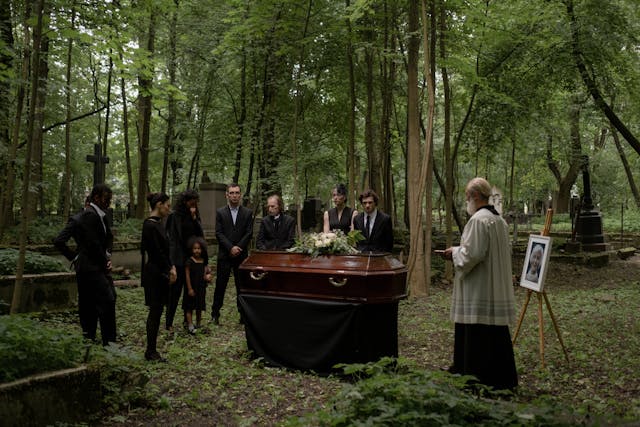In the intricate tapestry of human experiences, few events are as universally impactful as the passing of a loved one. Amid this emotionally charged atmosphere, funeral directors emerge as essential guides, providing not only professional services but also compassionate support to bereaved families. Their role is multifaceted, encompassing logistical coordination, emotional assistance, and ensuring that the final farewell is conducted with dignity and respect.
This involves meticulous planning and coordination, from preparing the body for burial or cremation to organizing the funeral service itself. funeral directors sydney work closely with families to understand their wishes and ensure that every detail aligns with the cultural, religious, and personal preferences of the deceased and their loved ones.
One of the most challenging aspects of a funeral director’s role is providing emotional support. Funeral directors serve as pillars of strength during this difficult time, offering a compassionate ear and gentle guidance. Their empathetic presence can provide solace, helping families navigate their grief and make informed decisions about funeral arrangements. By fostering an environment of understanding and care, funeral directors help families find a sense of closure and peace amid their sorrow.

In addition to their logistical and emotional responsibilities, funeral directors also handle a myriad of administrative tasks. This includes managing legal documentation, such as death certificates and permits, which are necessary for the burial or cremation process. They also coordinate with various service providers, including florists, caterers, and transportation companies, to ensure that all aspects of the funeral run smoothly. By taking on these burdensome tasks, funeral directors alleviate the stress on grieving families, allowing them to focus on mourning and remembering their loved ones.
Another crucial element of a funeral director’s role is acting as a liaison between the family and the broader community. This involves communicating with clergy, funeral officiants, and other key individuals involved in the funeral service. Funeral directors ensure that everyone is informed and that the service proceeds according to plan. They also manage public notifications, such as obituaries and announcements.

In recent years, the role of funeral directors has evolved to accommodate changing societal attitudes toward death and dying. With the rise of personalized and eco-friendly funerals, funeral directors are increasingly called upon to provide innovative and customized services. This might include arranging for green burials, where the body is returned to the earth in an environmentally sustainable manner, or planning unique memorial services that reflect the individuality of the deceased.
The memories created during a well-conducted funeral service can provide comfort and a sense of closure, helping families to process their loss and move forward with their lives. Funeral directors play a pivotal role in shaping these lasting memories, underscoring the importance of their work in the broader context of grief and recovery.
Despite the emotional toll that comes with their profession, many funeral directors find deep fulfilment in their work. They view their role as a calling, driven by a desire to help others during one of the most challenging times in their lives. This sense of purpose is reflected in their dedication to providing exceptional service, often going above and beyond to ensure that every detail is handled with care and compassion.












